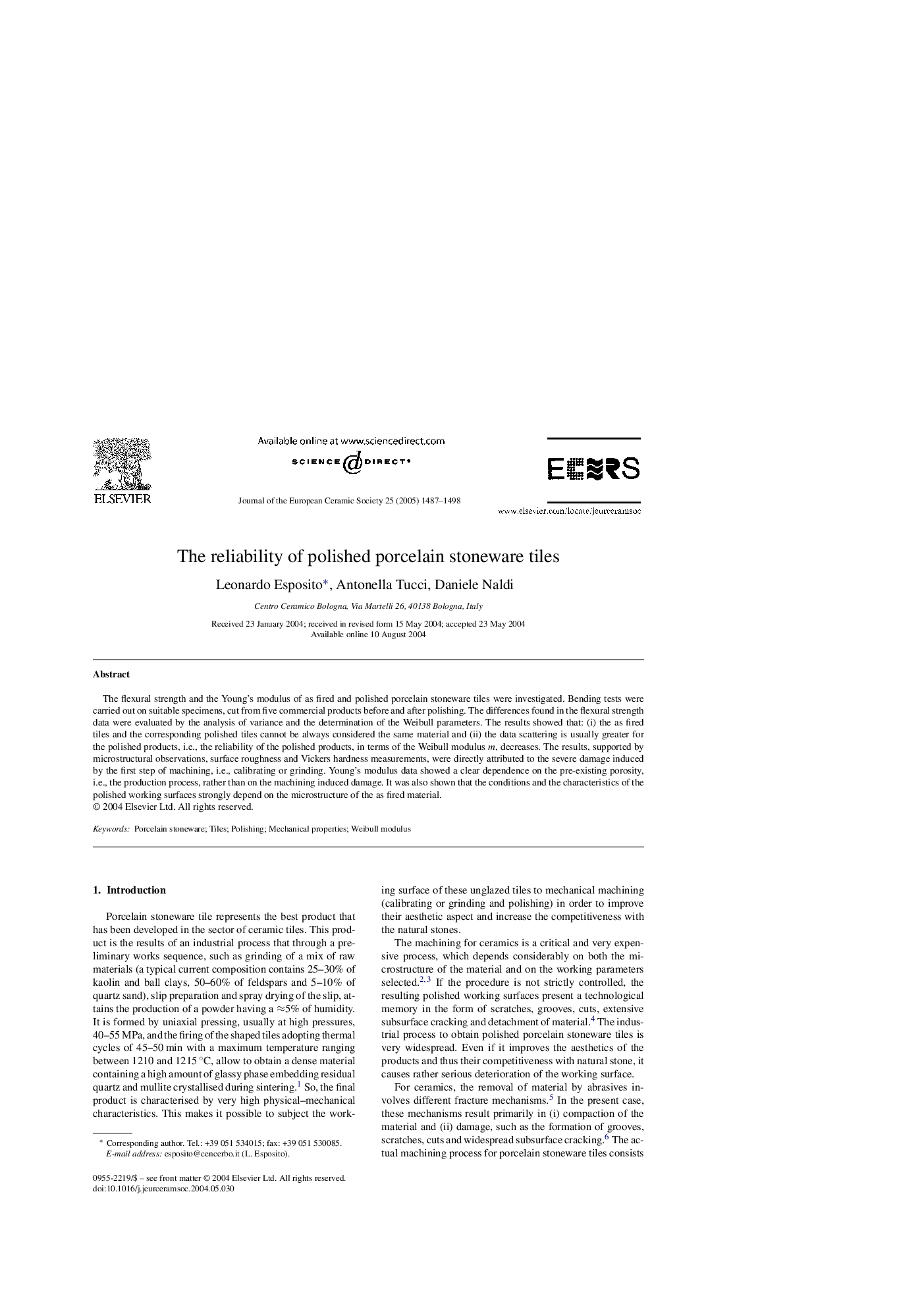| Article ID | Journal | Published Year | Pages | File Type |
|---|---|---|---|---|
| 10630021 | Journal of the European Ceramic Society | 2005 | 12 Pages |
Abstract
The flexural strength and the Young's modulus of as fired and polished porcelain stoneware tiles were investigated. Bending tests were carried out on suitable specimens, cut from five commercial products before and after polishing. The differences found in the flexural strength data were evaluated by the analysis of variance and the determination of the Weibull parameters. The results showed that: (i) the as fired tiles and the corresponding polished tiles cannot be always considered the same material and (ii) the data scattering is usually greater for the polished products, i.e., the reliability of the polished products, in terms of the Weibull modulus m, decreases. The results, supported by microstructural observations, surface roughness and Vickers hardness measurements, were directly attributed to the severe damage induced by the first step of machining, i.e., calibrating or grinding. Young's modulus data showed a clear dependence on the pre-existing porosity, i.e., the production process, rather than on the machining induced damage. It was also shown that the conditions and the characteristics of the polished working surfaces strongly depend on the microstructure of the as fired material.
Related Topics
Physical Sciences and Engineering
Materials Science
Ceramics and Composites
Authors
Leonardo Esposito, Antonella Tucci, Daniele Naldi,
